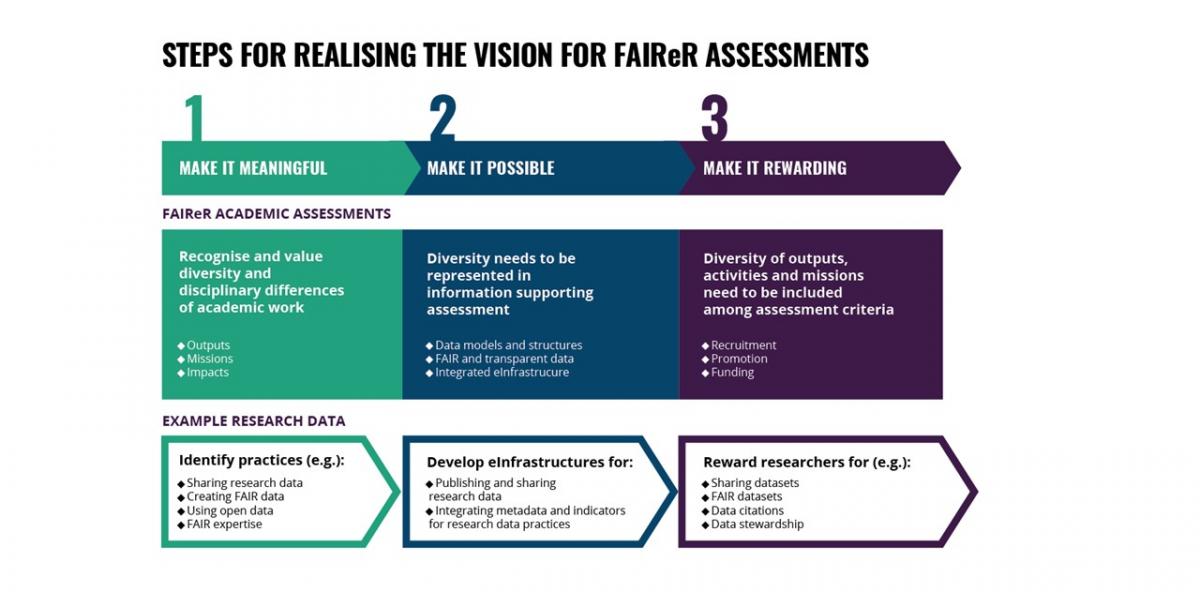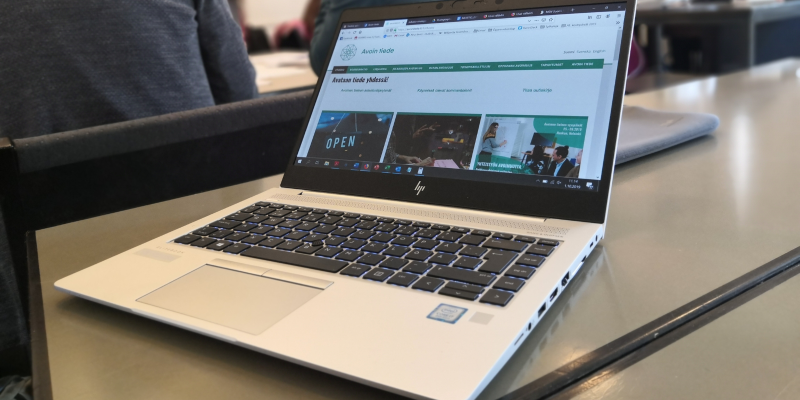
Making FAIReR (FAIReR = FAIR + Responsible) researcher assessments possible - Final report of EOSC Co-Creation project published.
Open science can be encouraged and rewarded by developing FAIReR assessments recognising open science outputs and activities. Such assessments are rooted in both the FAIR guidelines for data management and policies for the responsible assessment of research (FAIReR = FAIR + Responsible). This requires a variety of stakeholders - research communities, policy makers, funders and publishers - to work together to address social and cultural barriers and challenges. It also requires creating a technical infrastructure, which makes responsible assessments of open science practices and outputs possible.
The project, funded by the EOSC Co-Creation funding, aimed to produce an overview of the current role of FAIR data in researcher assessment, and to create a vision and roadmap to better incorporate FAIR data in European research assessment as an essential incentive for researchers to engage with FAIR data production and use of EOSC services. According to the FAIR principles, the data should be Findable, Accessible, Interoperable and Re-usable.
The final report is openly available at Zenodo (please see details below) and can be downloaded also from project's website.
- Henriikka Mustajoki, Janne Pölönen, Kathleen Gregory, Dragan Ivanović, Valerie Brasse, Joonas Kesäniemi, Elina Koivisto, Elina Pylvänäinen (2021): Making FAIReR assessments possible. Final report of EOSC Co-Creation projects: “European overview of career merit systems’’ and “Vision for research data in research careers” https://doi.org/10.5281/zenodo.4701375
In the report we build on our research and co-creation processes to argue for creating FAIReR academic assessments and infrastructures. Such assessments are rooted in both the FAIR guidelines for data management and policies for the responsible assessment of research (FAIReR = FAIR + Responsible). Specifically, FAIReR assessments emphasise diversity, communities, and dialogue.
In order for FAIReR assessments to be realised:
1. Communities co-create the meaning of diversity in assessments
Make it meaningful. We need to know what we want to value and evaluate. To do this, we start by considering the goals of open science and do not limit our evaluations to what is technically possible or easy to measure. We take into consideration the diversity of practices, outputs, missions and impacts of academic work, and differences between fields. In the case of research data, such practices may include sharing (open) datasets, creating FAIR datasets, reusing data, or cultivating expertise in creating or curating FAIR data.
2. Communities build assessments on infrastructures capturing diversity
Make it possible. We need to make it possible for researchers to report, make visible, and explain their diverse outputs, activities and impact of their work. Integration of relevant information from different sources is facilitated by open assessment infrastructure. In the case of research data, information on creating, publishing and sharing research data needs to be reliable, comprehensive, comparable and structured.
3. Communities reward diverse open science and FAIR practices
Make it rewarding. We need to include a broad range of outputs, activities and impacts of academic works in criteria for hiring, promotion and funding. In the case of research data, this may include shared or open data, indications of data reuse, or acting as data steward.

